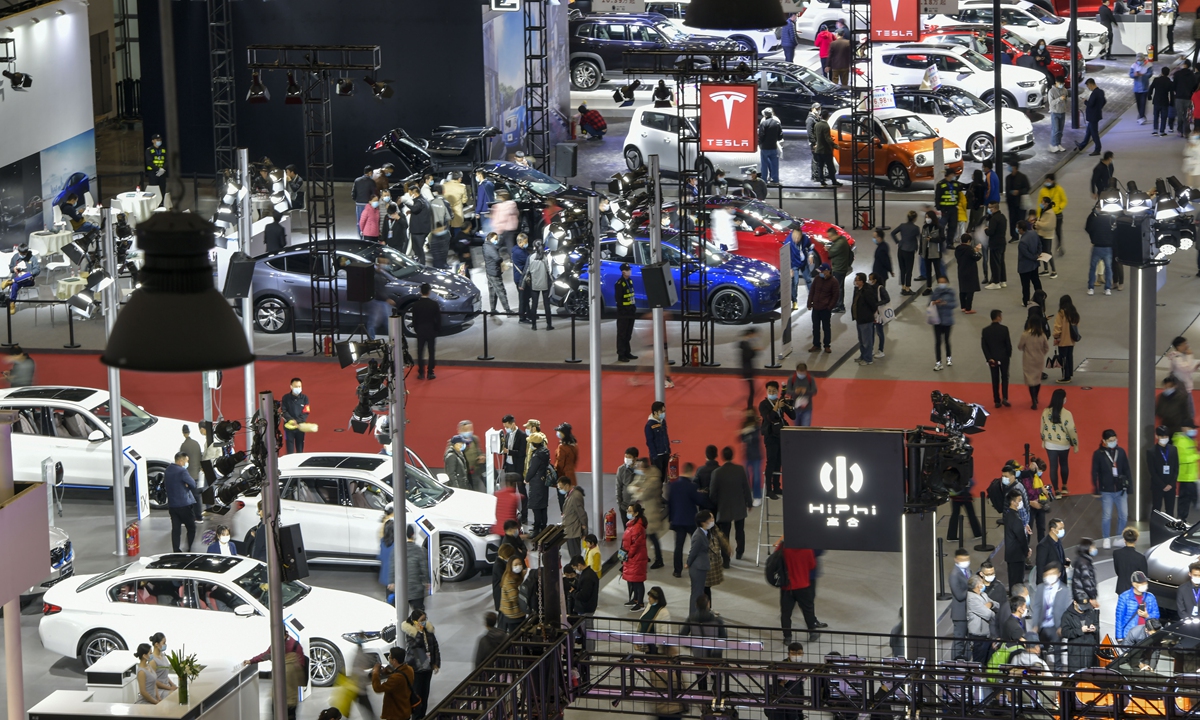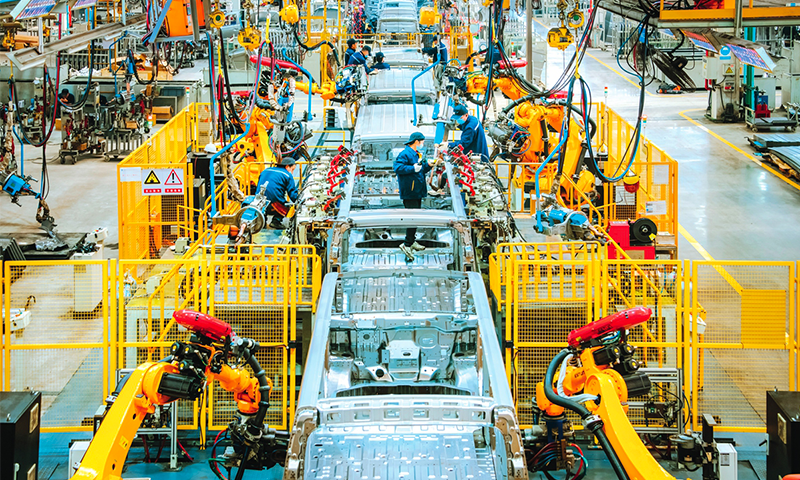Car industry association calls for scrapping of car purchase curbs in certain cities to tap into market potential

Haikou hosts the new energy vehicle (NEV) show in South China's Hainan Province in July, 2022. File Photo: cnsphoto
A Chinese auto industry association has called for scrapping of car purchase curbs in cities with car ownership below 4 million units.
The China Association of Automobile Manufacturers (CAAM) said on Thursday that it advises cities to gradually ease restrictions on the purchase of internal combustion engine vehicle. It suggests that cities with car ownership below 4-5 million units can still proactively manage the pressure caused by congestion without a curb on car purchases.
The industry association noted that currently, some cities implementing car purchase restrictions have fallen far behind cities without such curbs in terms of car ownership.
There is still great potential in the domestic auto consumption market with plenty of room for growth in small- and medium-sized cities and rural areas, including counties and villages, CAAM said. In mega cities, there is also room to further boost car sales.
The association stated that while the Chinese auto industry achieved significant performance in 2023, it has yet to fully tap into the vast potential of the market.
In 2023, the industry sold 30.09 million units of cars and realized sales revenue of 10.09 trillion yuan ($1.42 trillion) with an annual growth rate of 12 percent, while profit reached 508.6 billion yuan with a 5.9-percent growth year-on-year.
A auto purchase curb policy was implemented by a number of Chinese cities for over a decade to alleviate pressure on the environment and city traffic.
There are 25 cities with car ownership exceeding 3 million units as of the end of 2023. Five cities have car ownership of more than 5 million.
Four cities that had car ownership between 4-5 million units by the end of 2022 did not introduce a car purchase curb policy.
The association argued that as new-energy vehicle sales have reached 35 percent of the total car sales in China, curbs for internal combustion engine vehicles should be gradually lifted to stabilize normal purchases and realize the full and sustainable growth of car consumption.
In line with the Central Economic Work Conference's call to stimulate consumption, Chinese government departments are mulling ways to boost sales of big-ticket items, such as cars.
On Tuesday, Vice Minister of Commerce Sheng Qiuping said that the ministry will stabilize and expand consumption in traditional areas and promote a transition of car consumption management from that of purchase to that of usage.
On Wednesday, the ministry and four other government departments issued a notice calling for measures, such as setting up overseas after-sale service centers and specialized e-commerce platforms, to boost the exports of secondhand cars.

